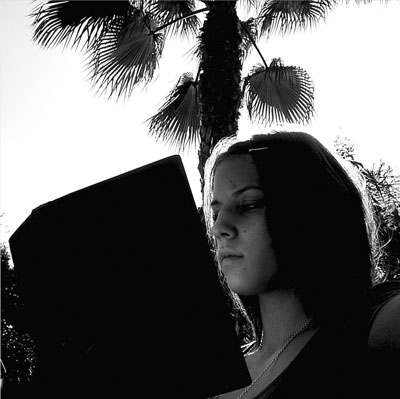All Nonfiction
- Bullying
- Books
- Academic
- Author Interviews
- Celebrity interviews
- College Articles
- College Essays
- Educator of the Year
- Heroes
- Interviews
- Memoir
- Personal Experience
- Sports
- Travel & Culture
All Opinions
- Bullying
- Current Events / Politics
- Discrimination
- Drugs / Alcohol / Smoking
- Entertainment / Celebrities
- Environment
- Love / Relationships
- Movies / Music / TV
- Pop Culture / Trends
- School / College
- Social Issues / Civics
- Spirituality / Religion
- Sports / Hobbies
All Hot Topics
- Bullying
- Community Service
- Environment
- Health
- Letters to the Editor
- Pride & Prejudice
- What Matters
- Back
Summer Guide
- Program Links
- Program Reviews
- Back
College Guide
- College Links
- College Reviews
- College Essays
- College Articles
- Back
Censorship
Is it truly better to walk through life in a state of blissful ignorance? Is it truly right to force such a state on others, particularly the ones who will one day be running our country? In today’s society, is it even rational to put stock in such an idea as blissful ignorance? These are the kind of questions we must ask ourselves, and the kind of questions we must ask our educators to ask themselves. If you think about our future, what we are meant to achieve and what we have yet to gain, or even if you happen upon any thoughts of what the future generations are meant to achieve, and or gain, you may find yourself facing a set of unsettling conclusions. There are big expectations out there for the current generation, and may I ask, where, in those big expectations, is there room for censorship?
In recent news coverage a popular teen series, The Hunger Games, has made a splash by being withdrawn from many school libraries on account of graphic violence. However, when making that cut, I believe that many educators tend to look past the bigger picture, allowing their own beliefs to scurry in with their overall judgment. On the surface, this is a story about a televised event where children, a few of whom are preteenagers, are thrown into an arena and left to fight to the death. Essentially, staging a war amongst themselves of which only one will be the victor. When you delve a bit deeper, looking past that grotesque surface plot, you will find a story of compassion, bravery, and undeniable humbleness. A story with a female character who for once is not sniveling over whether or not she has chosen the right male counterpart, a refreshing breath of relief from what so often haunts the teenage literary genre.
Back in 2007 the Catholic Church staged a formal revolt against the film adaption of The Golden Compass, a bestselling novel by Phillip Pullman, showcasing the adventures of a young girl as she works her way through fulfilling her destiny. The universally renowned trilogy, including The Subtle Knife and The Amber Spyglass, have sold more than 15 million copies to date and are largely thought of as classic storytelling at its best. The series was by no means hiding under a rock, but in 2007 it would seem, the storybooks that parents have been reading their children for years, suddenly went under prosecution. I am not ashamed to admit that my own parents but a veto on the book and a stern caution on the film, both of which I ignored and both of which I got my hands on. What I found, being your average twelve-year-old kid, was a story about a girl who was trying to save the world from evil, which in this case were adults who worked for the church. It did not even cross my mind till years after finishing the final novel, and years of listening to relative complaints, that The Authority, whom they were trying to kill, could be God.
Even farther back, almost before my time, was the war on Harry Potter. I have never quite been able to understand this one myself. Apparently, Harry Potter promotes homosexuality, even though only one character is gay. Again, something I didn’t pick up on until years after the fact, as most children, I’m sure, wouldn’t. Also, since he can cast spells, cheat on homework, and lie, he is not a good influence for children… who is? Maybe we should quit focusing on foolish details; maybe we should just be grateful to J.K. Rowling for getting children to read at all nowadays. Maybe we should all just thank her for breaking the ball and chain that tether so many children nowadays to their video game systems; figure that most of what’s in her books cannot be anywhere near as bad as half of what’s projected on their computer’s screen.
Let me make myself clear when I say this; these characters, as well as these books, may not be flawless, but think carefully here, because neither are those people dictating over your literary choices. This is a judgment call, people, and it’s time for you to make your decision.

Similar Articles
JOIN THE DISCUSSION
This article has 1 comment.
